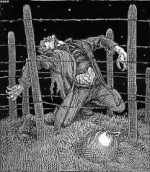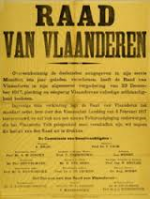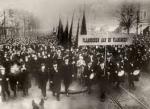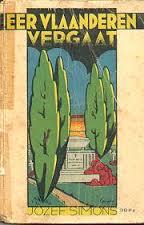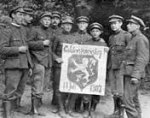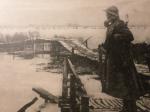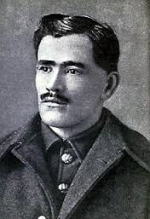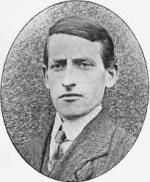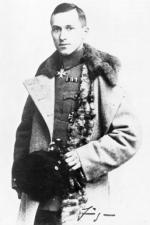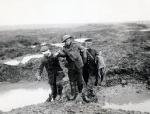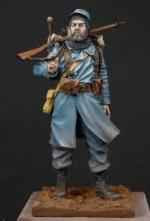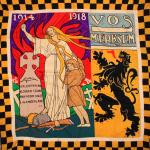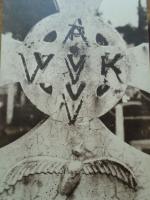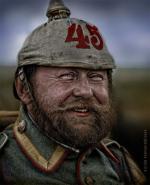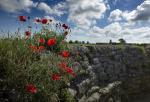|
Vandaag in Zondag
Frontpoëziedag de absolute klassieker For
the Fallen van de Britse kunstkenner, dichter en dramaturg Laurence Binyon (1869-1943).
Binyon, die te oud was om nog militaire dienst te moeten meldde zich in 1915
als vrijwilliger voor de dienst in een Brits noodhospitaal voor Franse
militairen in het Noord-Franse Hôpital Temporaire dArc-en-Barrois waar hij als
brancardier aan de slag ging. Zijn ervaringen in Frankrijk bundelde hij in 1918
in For Dauntless France. Zijn
gedichten Fetching the Wounded en The
Distant Guns werden geïnspireerd door zijn verblijf in Frankrijk.
For the Fallen
schreef hij geschokt door de hoge verliescijfers van de British
Expeditionary Force - al in het begin van de oorlog. Het werd in september 14 gepubliceerd
in The Times en werd al snel door
de poëtische zeggingskracht één van de populairste oorlogsgedichten in het
Verenigd koninkrijk.
FOR THE FALLEN
With proud thanksgiving, a mother
for her children,
England mourns for her dead
across the sea.
Flesh of her flesh they were,
spirit of her spirit,
Fallen in the cause of the free.
Solemn the drums thrill; Death
august and royal
Sings sorrow up into immortal
spheres,
There is music in the midst of
desolation
And a glory that shines upon our
tears.
They went with songs to the
battle, they were young,
Straight of limb, true of eye,
steady and aglow.
They were staunch to the end
against odds uncounted;
They fell with their faces to the
foe.
They shall grow not old, as we
that are left grow old:
Age shall not weary them, nor the
years contemn.
At the going down of the sun and
in the morning
We will remember them.
They mingle not with their
laughing comrades again;
They sit no more at familiar
tables of home;
They have no lot in our labour of
the day-time;
They sleep beyond England's foam.
But where our desires are and our
hopes profound,
Felt as a well-spring that is
hidden from sight,
To the innermost heart of their
own land they are known
As the stars are known to the
Night;
As the stars that shall be bright
when we are dust,
Moving in marches upon the
heavenly plain;
As the stars that are starry in
the time of our darkness,
To the end, to the end, they
remain.
|



